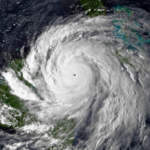A shift in traveler priorities signals a cautious approach to leisure spending.
- Travel spending in the U.S. is slowing down, with executives noting ‘softness’ in demand.
- Many travelers are opting for cheaper accommodations or cutting back on trips altogether.
- High-income travelers are still traveling internationally, while lower-income travelers face financial constraints.
- New California law requires disclosure of hidden fees, impacting booking decisions.
- Airlines are reducing fall flight schedules due to decreased domestic demand.
The travel economy is showing signs of a slowdown, with executives from major companies like Expedia, Marriott, Airbnb, and Hilton frequently mentioning ‘softness’ in domestic leisure demand during recent earnings calls. Many Americans are either canceling trips or opting for more affordable accommodations. While higher-income travelers continue to explore international destinations, lower-income individuals are feeling the pinch and are more selective about their travel plans. For instance, healthcare worker Kai Tenenberg from Florida is now staying with friends to save on hotel costs. Travelers are prioritizing value and becoming more discerning in their bookings, with cruise lines benefiting from this trend due to their all-inclusive pricing models. However, domestic hotels that rely heavily on leisure travelers are struggling. The rising costs of essentials like food and housing are forcing many to reconsider their travel budgets. A new California law mandating the disclosure of hidden fees has also impacted booking behaviors, leading to more cautious spending. While airlines are adjusting their fall schedules to match demand, cruise lines report increased onboard spending and future bookings. Overall, travelers are booking last-minute trips more frequently, indicating a shift in how they approach leisure travel.·
Factuality Level: 7
Factuality Justification: The article provides a detailed overview of the current state of the travel economy, supported by quotes from industry executives and travelers. However, it includes some anecdotal evidence that may not represent the broader trends and could introduce bias. While it avoids sensationalism, the reliance on personal stories and subjective experiences may detract from its overall objectivity.·
Noise Level: 7
Noise Justification: The article provides a detailed analysis of the current state of the travel economy, highlighting trends in consumer behavior and the impact of economic factors on travel decisions. It includes quotes from industry executives and travelers, which adds credibility. However, while it presents relevant information, it could benefit from deeper exploration of systemic issues and long-term implications.·
Public Companies: Expedia (EXPE), Marriott (MAR), Airbnb (ABNB), Hilton (HLT), Carnival Corp. (CCL)
Private Companies: Frontier
Key People: Chris Nassetta (Chief Executive of Hilton), Leeny Oberg (Chief Financial Officer of Marriott), Josh Weinstein (Chief Executive of Carnival Corp.), Ellie Mertz (Chief Financial Officer of Airbnb), Mark Zandi (Chief Economist at Moody’s Analytics), C. Patrick Scholes (Analyst for Truist Securities)
Financial Relevance: Yes
Financial Markets Impacted: The travel economy, including hotels, airlines, and cruise lines, is experiencing shifts in consumer spending patterns, which can affect their financial performance and stock prices.
Financial Rating Justification: The article discusses the slowdown in the travel economy, highlighting changes in consumer behavior and spending, which directly impacts financial markets and companies in the travel sector.·
Presence Of Extreme Event: No
Nature Of Extreme Event: No
Impact Rating Of The Extreme Event: No
Extreme Rating Justification: The article discusses a slowdown in the travel economy but does not mention any extreme events that occurred in the last 48 hours.·
Move Size: No market move size mentioned.
Sector: Travel
Direction: Down
Magnitude: Medium
Affected Instruments: Stocks
 www.wsj.com
www.wsj.com 




